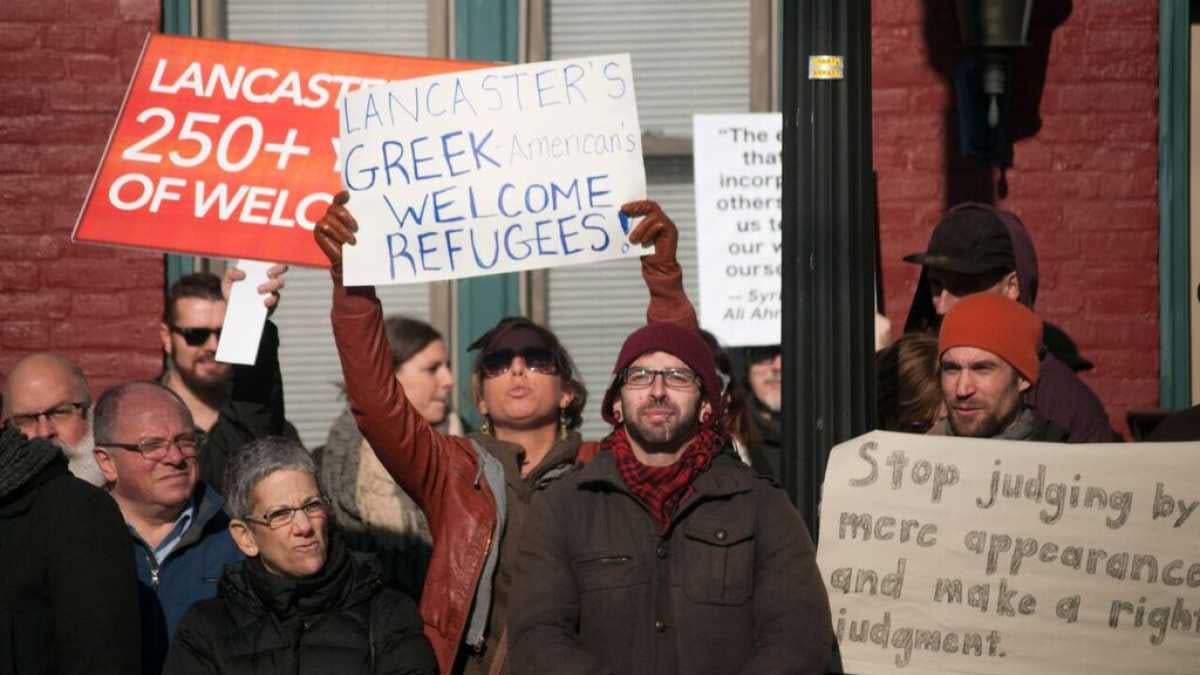Broader questions emerge in Lancaster refugee lawsuit

About 250 people demonstrated in support of refugee resettlement as a counter to a protest staged outside Church World Service's office in Lancaster last winter. The city of 60
The School District of Lancaster’s treatment of student refugees is on trial this week, but practices affecting a wider population of students have come under scrutiny during court proceedings.
A lot of discussions centered on the accelerated credit program at Phoenix Academy.
Phoenix, run by district contractor Camelot Education, was portrayed Wednesday as a diploma mill by attorneys representing six teenaged refugees in the lawsuit.
But Lancaster school officials say they send students to Phoenix if they’re at risk for aging out, or not earning enough credits to graduate before they turn 21.
The district’s lawyer says block-scheduling and limiting curriculum to the state’s core let students get a diploma in less time.
In Pennsylvania, local districts run their accelerated credit programs as they see fit without much state oversight or guidance.
But one student involved in this lawsuit —18-year-old Congolese refugee Anyemou Dunia — finished high school in 16 months. Dunia’s senior year spanned a week, despite English proficiency limited enough to require a translator in court.
Attorneys presented Dunia’s transcript in court, reading his brief academic timeline off a projection screen:
Junior year ended May 23. Senior year started May 24 and ended June 2.
Dunia’s graduation ceremony wasn’t until Tuesday night and the next day, he testified he wasn’t sure he learned enough to leave school.
Dunia says that he usually couldn’t understand what was said in class, wasn’t allowed to take home textbooks, and didn’t know extra help was available outside normal school hours.
The five other refugees have testified to similar experiences.
Now between the ages of 17 and 21, all fled violence in their home countries – in some cases, not before losing a parent. They recalled spending years in refugee camps and feeling hope and relief upon learning they’d be resettled in the United States.
“Frankly, any person’s or child’s dream is to go to America,” says Qasin Hassan, a 17-year-old from Somalia. “But it is very different for refugees once in America.”
Presiding judge Edward G. Smith says he expects the court to dig deeper in the coming days.
The students are seeking admission to McCaskey High School when school starts this month and longer-term changes to policies affecting matters such as enrollment and translation.
School officials and attorneys have been adamant they are following the law and acting in the best interests of students.
WHYY is your source for fact-based, in-depth journalism and information. As a nonprofit organization, we rely on financial support from readers like you. Please give today.



